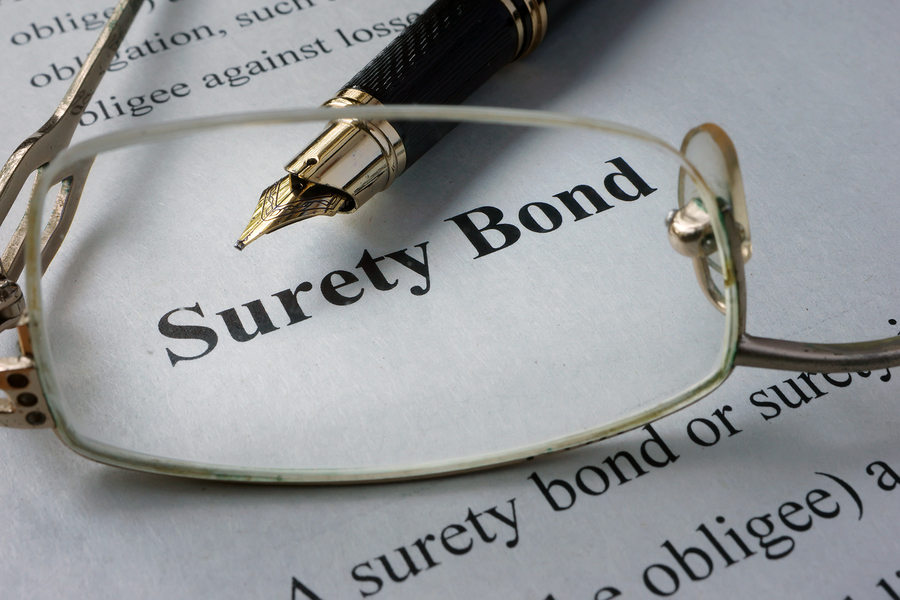If you need to surrender to an arrest warrant, or bail someone out of jail for the first time, your best asset is knowledge. Knowing some important industry terms can help you understand the process in a clearer sense, and therefore reduce any stress or ambiguity involved in obtaining a release from jail.
Below are the most commonly used terms spoken in the everyday bail bond business. Familiarize yourself with these terms, and you are one step closer to being prepared for such a situation.

Bail
Bail is often confused with “bail bond”. They are, in fact, separate terms. Bail refers to the amount of money the court assigns to a case that will allow the defendant to be released from jail, to await their future court dates. Bail can be anywhere from hundreds to thousands of dollars. Bail amounts depend on many variables. They are determined by the defendant’s criminal history, the charges against them, and the level of flight risk they may be.
Bail Bond
A bail bond is the actual item that a person needs to obtain to be released from jail while awaiting their court dates. To be “bonded” out of jail requires the assistance of a bail bondsman or a bail agency. They will be able to make a deal with the court by guaranteeing the appearance of the defendant at their court date. If the defendant fails to appear, then the bail agency is responsible for the entire bond amount. The defendant is only required to pay a small percentage of the full bail amount to receive the services of a bail agency and be released from jail. That percent is usually between 10-15%, depending on the state.
Bail Bondsman
A bail bondsman is simply the conductor of bail bonds. They are the men, women, and companies that facilitate the process of obtaining a bail bond and gaining a release for a person in jail.
Bail Hearing
After an individual is in detention, a bail hearing is scheduled to decide whether or not they are a flight risk, as well as, set the bail, or deny it altogether if they are considered a flight risk.
Bail Schedules
Most states have bail schedules with predetermined bond amounts for certain categories of crimes. For instance, shoplifting might come with an automatic bail schedule of $1000, while domestic violence might have a $10,000 bond or more. The more serious the crime, the higher the bond amount set by the judge.
Prearranged Bail
Most bail bondsmen offer prearranged bail bond services for those who need to surrender to an arrest warrant. All you have to do is contact a local bail agent in the county of your warrant, and they will take you through the entire process, start to finish. They may even give you a ride to and from the jail.
Surety Bonds
The most common type of money bail used in today’s court systems are actually surety bonds, which are more colloquially known as bail bonds. If using a surety bond, a person would pay a third party (a bail bond company) a state-regulated fee that is a derived percentage of the total bail amount set forth by the judge. This means that the fee will not vary in percentage, but it will vary in cost from person to person depending on how high the judge sets their bail.
Cash Bonds
Cash bonds involve only two parties: the jail and the client. Again, the client can be the actual defendant or a friend or family member of the defendant. In a cash bond scenario, the defendant pays their set bond amount in cash directly to the jail to get released. So long as they appear for their court hearing, they receive the money back in full; if they do not show up for court, they surrender the money entirely. Not many people have $5,000 or $10,000 in cash laying around, so they cannot afford to use a cash bond.
Collateral
Collateral refers to a person’s assets that can be translated into cash, and thus, adequate to secure a debt. A person will provide collateral in exchange for a service (such as a bail bond), and if they cannot cover the terms and conditions of the contract (a bail bond agreement), they will forfeit their collateral, and the service provider (a bail bond agent) will still be able to collect financial restitution for the value of the collateral. If the payee does meet the terms and conditions of the contract, the provider returns all collateral once the case is closed.
8th Amendment Rights
According to the Bill of Rights, our 8th Amendment gives us certain rights surrounding bail. Basically, it prohibits the federal government from being unfair or callous to suspected criminals and convicts. Specifically, it states, “Excessive bail shall not be required, nor excessive fines imposed, nor cruel and unusual punishments inflicted.”
See our BAIL GLOSSARY for a comprehensive list of bail bond terms and definitions.
Where to Get Cheap Bail Bonds in Indianapolis, FAST
Contact Woods Bail Bonds at 317-876-9600 for prompt and professional, 24 hour bail bond services in Indiana. Not only can we get you out of jail fast, we can prearrange a bail bond if you need to surrender to an arrest warrant. We serve the entire state, as well as the Indianapolis region, including Hamilton County, Marion County, Hancock County, Hendricks County, and more! From convenient customer services like free jail pick up and drop off, to 24 hour emergency bail bonds, free jail and courthouse information, and more, we are truly your best option for fast bail bonds near you. We operate 24-7-365, even on National holidays. Request a free estimate, anytime!











